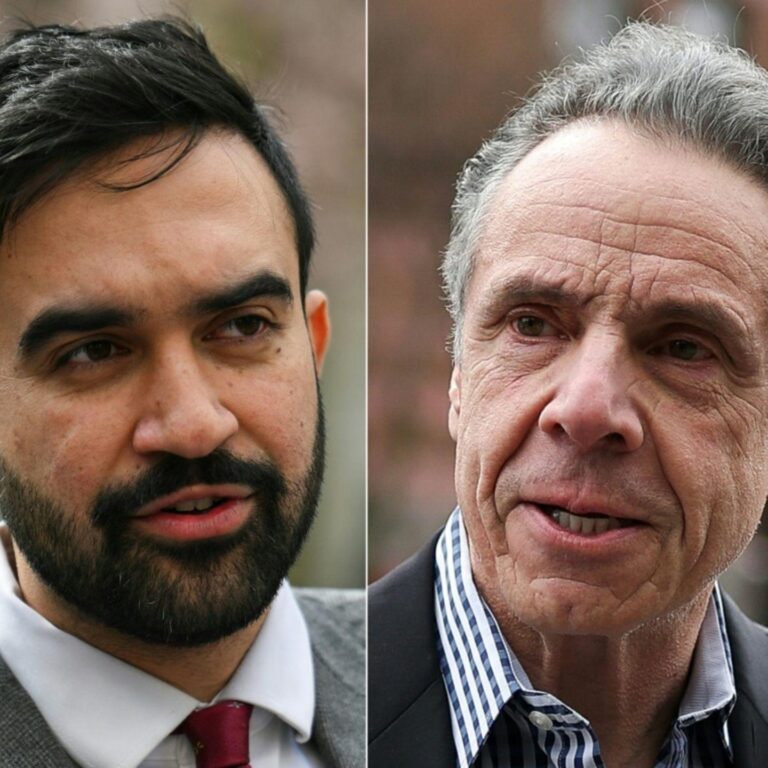In a recent development that has sparked debate among political circles, Congress leader Abhishek Singhvi has publicly criticized Zohran Mamdani, the Indian-origin candidate vying for New York City’s mayoral seat. Singhvi’s remarks, which came during a press interaction, targeted Mamdani’s public speaking style and political positioning, drawing attention from both Indian and international observers. This unfolding episode highlights the complexities and sensitivities surrounding diaspora politics and the growing influence of Indian-origin leaders on the global stage.
Zohran Mamdani Faces Backlash from Congress Leader Abhishek Singhvi Over Controversial Remarks
Zohran Mamdani’s recent comments have ignited a sharp response from prominent Congress leader Abhishek Singhvi. The Indian-origin New York City mayoral candidate was accused by Singhvi of making inflammatory and divisive statements that undermine the spirit of inclusivity and community harmony. Singhvi’s criticism highlights the sensitivity around political rhetoric, especially from candidates representing diverse backgrounds on international platforms.
Singhvi’s backlash centers on several key concerns:
- The potential impact of Mamdani’s rhetoric on Indo-American relations.
- Concerns over alienation within immigrant communities.
- Implications for political discourse in a multicultural society.
In response, Mamdani has defended his remarks, emphasizing the importance of candid discussions on social justice. The controversy sparks a wider debate around how political figures balance activism with diplomacy in their public communication.
| Aspect | Singhvi’s Position | Mamdani’s Stance |
|---|---|---|
| Political Impact | Risk of divisiveness | Necessity of honest dialogue |
| Community Relations | Calls for unity and harmony | Focus on marginalized voices |
| International Perception | Worries about diplomatic effects | Promotes progressive representation |
Analysis of Indian-Origin NYC Mayoral Candidate’s Political Stance and Public Perception
Zohran Mamdani, an Indian-origin candidate running for New York City mayor, has sparked intense debate following recent remarks by Congress leader Abhishek Singhvi. Singhvi’s critique, widely covered by national and international media, centers on Mamdani’s political rhetoric and policy proposals, which he deems divisive and lacking in clarity. The sharp rebuke highlights a growing concern among Indian expatriates and political observers about the direction of Mamdani’s campaign and how it may shape the narrative around Indian-origin politicians in global urban centers.
Public perception of Mamdani remains mixed, with supporters praising his progressive agenda while critics point to perceived inconsistencies and controversial statements. Key factors influencing the discourse include:
- Policy Priorities: Mamdani advocates for affordable housing, climate action, and social justice reforms, resonating with younger voters.
- Community Engagement: His active outreach to immigrant communities has solidified a loyal base, but some question the depth of his alliances across diverse groups.
- Media Portrayal: The contrasting narratives between Western and Indian media reflect broader challenges faced by diaspora politicians in balancing local and homeland expectations.
| Aspect | Supporters’ View | Critics’ View |
|---|---|---|
| Economic Policy | Inclusive & progressive | Unrealistic & populist |
| Community Relations | Bridges diverse groups | Lacks transparency |
| Public Speech | Passionate & engaging | Confusing & divisive |
Recommendations for Addressing Cross-Border Political Criticism in Diaspora Politics
Addressing political criticism that transcends national boundaries requires a multifaceted approach, especially within diaspora communities that hold strong ties to their countries of origin. Promoting open channels of dialogue among diaspora leaders and stakeholders can help reduce misunderstandings and foster a culture of mutual respect. Encouraging political figures to engage in constructive conversations rather than confrontational rhetoric serves to de-escalate tensions and build consensus on shared concerns. Equally important is the cultivation of media literacy within diaspora populations, allowing individuals to critically assess political commentary sourced from both their homeland and host countries.
To effectively navigate these cross-border dynamics, several practical strategies can be implemented:
- Establish cross-community forums to facilitate exchange and collaboration among different diaspora groups.
- Promote transparent communication from politicians regarding their intentions and platforms.
- Leverage social media responsibly to counter disinformation while preserving freedom of expression.
- Encourage diaspora involvement in local governance to root political discourse in immediate community interests.
| Challenge | Recommended Approach |
|---|---|
| Polarization within diaspora groups | Create inclusive platforms for dialogue |
| Spread of misinformation | Implement fact-checking networks and media literacy |
| Conflicting loyalties | Promote local political engagement alongside homeland interests |
| Challenge | Recommended Approach |
|---|---|
| Polarization within diaspora groups | Create inclusive platforms for dialogue |
| Spread of misinformation | Implement fact-checking networks and media literacy |
| Conflicting loyalties | Promote local political engagement alongside homeland interests |




